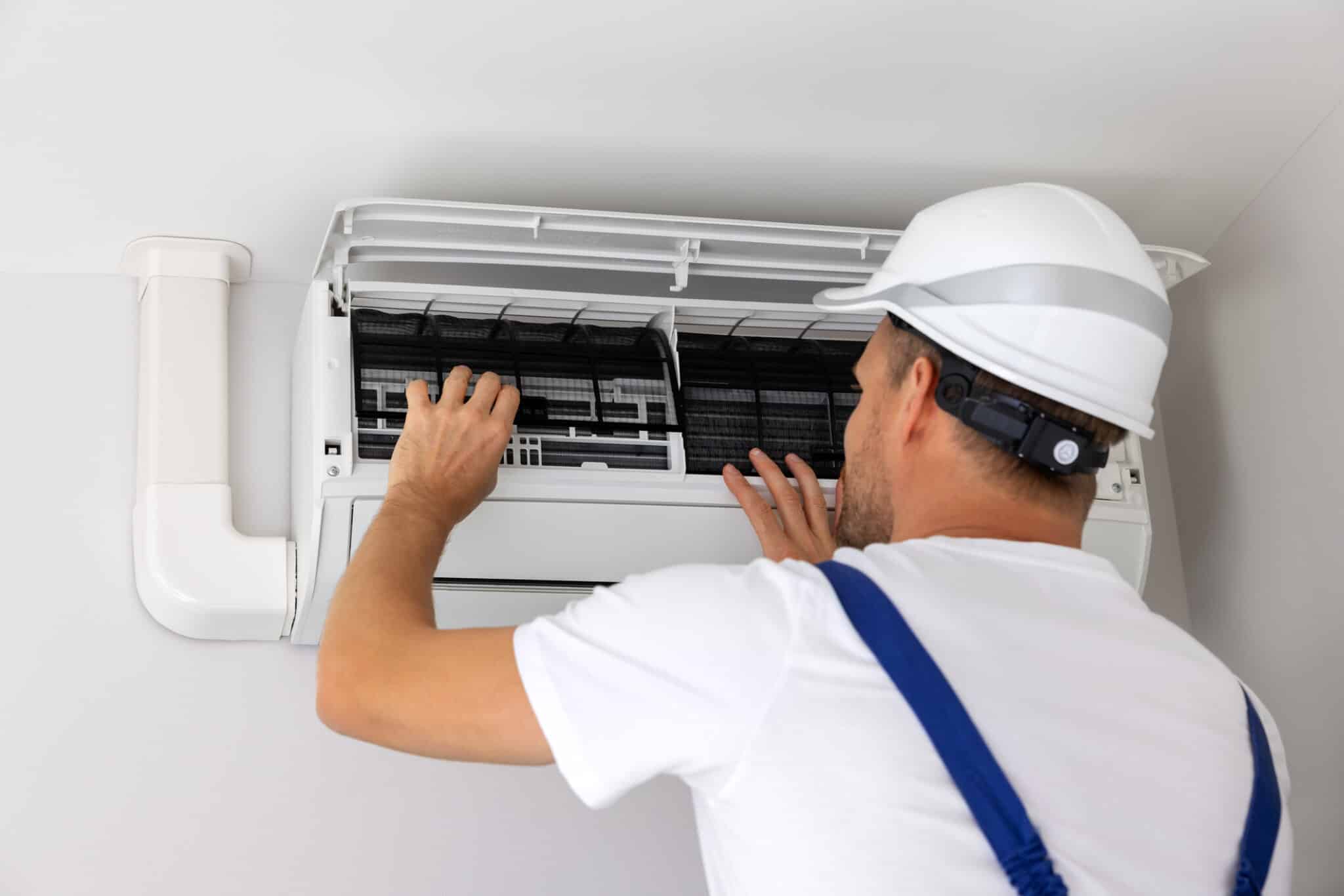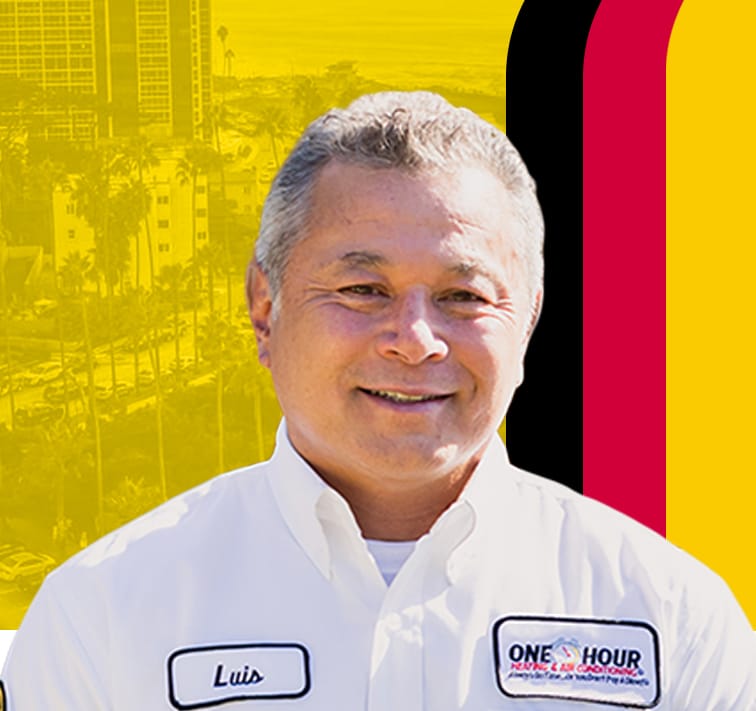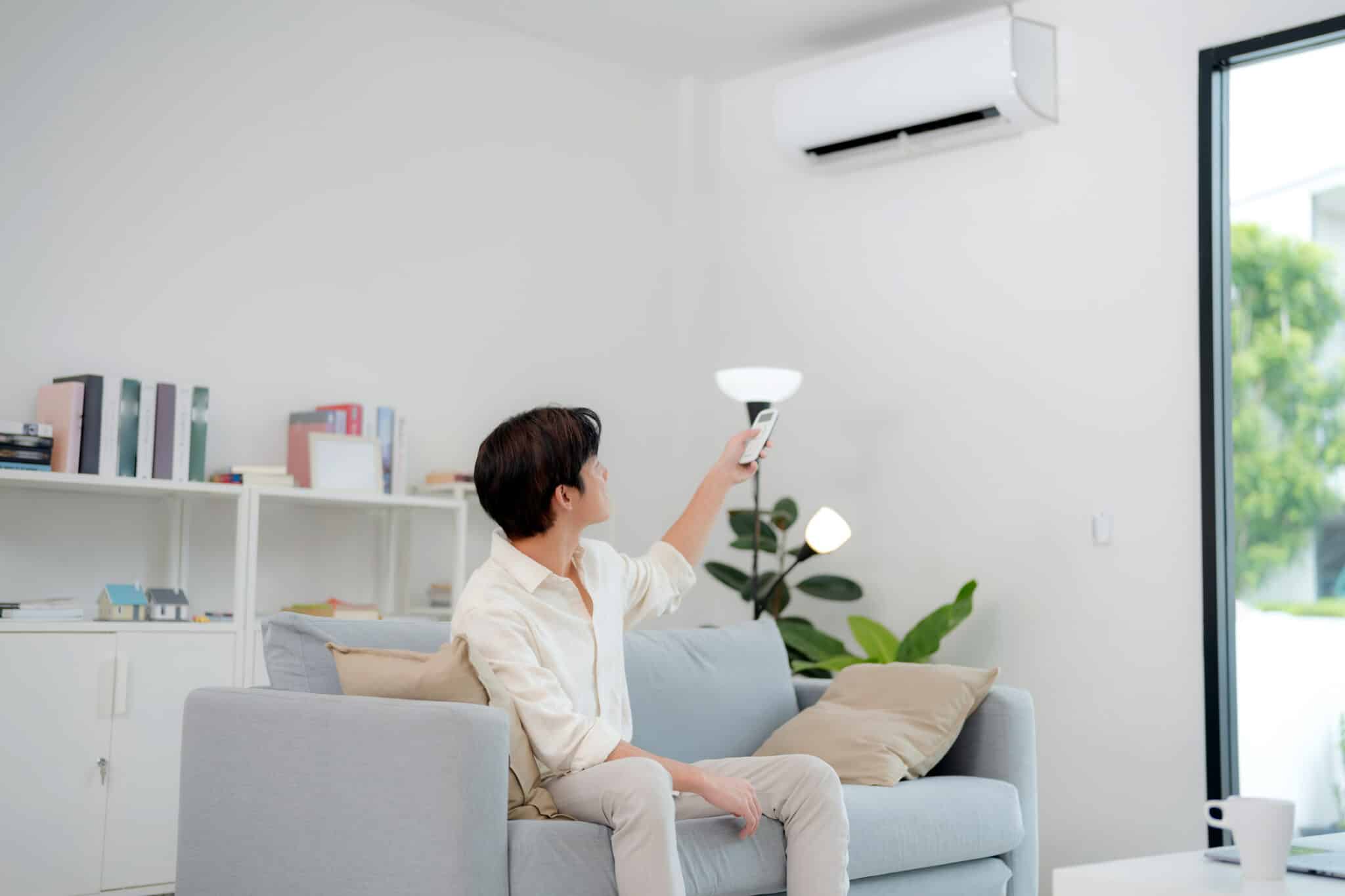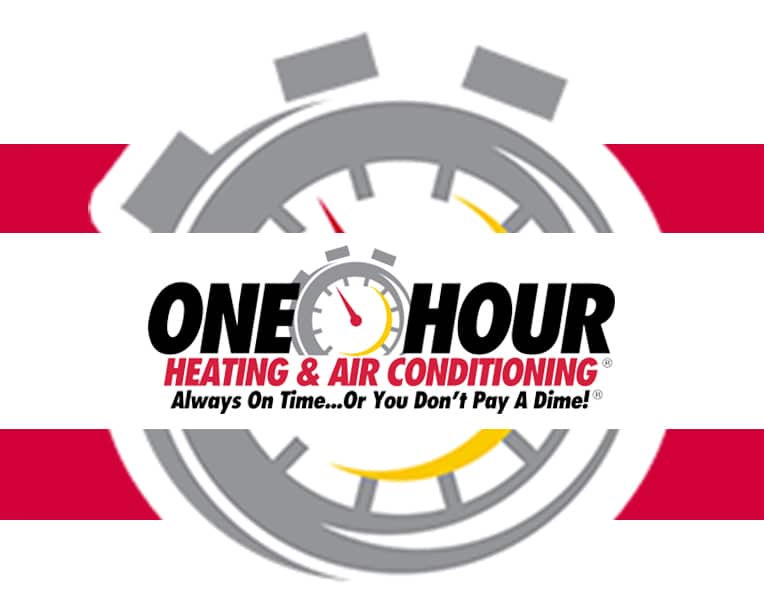Have you noticed your AC system working harder than usual when the salty sea breeze rolls in? If you live near the coast, like in San Diego, CA, your air conditioning system has to deal with more than just keeping you cool.
Coastal climates can be rough on AC units, causing rust, reduced efficiency, and shorter lifespans. But don’t worry—by optimizing your system, you can protect it from the coastal elements and keep your home cool and comfortable year-round!
Understanding Coastal Climate Challenges
Living near the coast comes with plenty of perks—beautiful scenery, fresh air, and cooler weather—but coastal climates can pose some unique challenges for your AC system. The salty air, combined with high humidity, creates a perfect recipe for corrosion and wear on your AC unit.
Salt can quickly damage your system’s coils, fans, and other metal components, leading to rust and costly repairs that shorten the life of your AC. Humidity adds another layer of strain by making your system work overtime to maintain a comfortable indoor environment, putting more pressure on its components and reducing overall efficiency.
This combination of salt and moisture can cause faster breakdowns, so understanding and addressing these issues is crucial to keeping your AC running smoothly.

Importance of Optimizing Your AC System
Optimizing your AC system is not just about making it run better—it’s about extending its lifespan and avoiding unexpected breakdowns in the middle of a hot day. A well-optimized unit will not only perform more efficiently but also help you save on energy bills by using less power to cool your home.
Proper optimization ensures that your AC can handle the unique coastal conditions, reducing wear and tear caused by salty air and high humidity.
It also keeps the system operating quietly and smoothly, making your living space more comfortable. In coastal areas like San Diego, keeping your AC system in top shape is essential for avoiding costly repairs and maintaining a comfortable indoor environment.
Benefits of an Efficient AC System
An efficient AC system provides more than just reliable cooling. It uses less energy, which means lower monthly bills and a reduced carbon footprint. By working at its peak performance, it also cools your home more evenly, eliminating those annoying hot spots in certain rooms.
With fewer breakdowns and repairs, you’ll spend less time worrying about maintenance and more time enjoying a cool, comfortable home. Ultimately, a well-maintained AC system will deliver consistent comfort while keeping more money in your pocket.
Enhancing Comfort and Indoor Air Quality
Optimizing your AC system doesn’t just improve cooling—it can also boost your indoor air quality. By maintaining proper airflow and using high-quality filters, an efficient AC can remove dust, pollen, and other allergens from the air, making it healthier to breathe.
This is especially important in coastal areas where humidity can lead to mold and mildew growth. An optimized system helps reduce humidity levels, preventing these issues and keeping your home feeling fresh. The result is a more comfortable and healthier living space for you and your family.
Key Features of AC Systems for Coastal Living
Not all air conditioners are built to withstand the challenges of coastal environments. When choosing an AC system for coastal living, there are specific features you should prioritize to ensure it lasts longer and operates efficiently.
The right system should be designed to combat corrosion, manage humidity, and deliver consistent performance despite the harsh conditions.
Investing in a unit with these specialized features will help protect your AC from damage and keep your home comfortable all year round. Here’s a breakdown of the key features to look for in an AC system for coastal areas.
Corrosion-Resistant Materials
In a coastal setting, corrosion is one of the biggest threats to your AC system’s lifespan. The salty air can quickly rust and degrade components, leading to costly repairs or even the need for a complete replacement.
To combat this, look for systems that use corrosion-resistant materials, like aluminum or specially coated metals, in their coils, casing, and fasteners.
Some high-quality units are designed with anti-corrosion coatings that create a protective barrier against salt and moisture, significantly extending the life of your AC unit. Choosing a system with these materials will ensure that your AC stands up to the coastal climate and keeps running smoothly.
High-Efficiency Ratings
Since coastal areas often have fluctuating temperatures and humidity levels, it’s important to have an AC system that performs efficiently without wasting energy. Units with a high Seasonal Energy Efficiency Ratio (SEER) rating are designed to deliver better cooling using less power, which is essential for keeping energy bills low.
Look for systems with a SEER rating of 16 or higher to ensure optimal efficiency. This will not only help you save money but also reduce the strain on your unit, allowing it to maintain consistent performance in the demanding coastal environment.
Advanced Filtration Systems
With high humidity and the potential for salt and pollutants in the air, having an AC system equipped with advanced filtration is crucial. Systems with HEPA filters or UV light technology can trap and neutralize allergens, mold spores, and other contaminants, keeping your indoor air cleaner and healthier.
This is particularly beneficial for coastal homes, where damp conditions can encourage mold growth. By choosing a system with superior filtration, you’re not just optimizing your AC’s performance—you’re also improving the air quality in your home, making it a safer place for your family to breathe.
Steps to Optimize Your AC System
Regular Maintenance and Inspections
Consistent maintenance is the backbone of an efficient AC system. Schedule a professional inspection at least twice a year to check for any signs of corrosion, worn-out components, or reduced efficiency.
Regularly clean or replace the air filters, as clogged filters can make your system work harder and decrease its lifespan.
Coastal environments can cause debris and salt to accumulate in your unit, so it’s also a good idea to rinse off the external components with fresh water every few months. Keeping up with maintenance prevents small issues from turning into big problems, saving you time and money in the long run.
Upgrading Components for Better Performance
Sometimes, small upgrades can have a huge impact on how well your AC system performs. Consider swapping out standard coils for coated coils that are specifically designed to resist salt corrosion.
Upgrading to a smart thermostat can also enhance efficiency by learning your cooling habits and adjusting temperatures accordingly.
Replacing old, inefficient fans or motors with newer, high-efficiency models will reduce the strain on your system and help maintain consistent airflow. These upgrades not only boost performance but also help your system last longer in a coastal setting.
Ensuring Proper Insulation and Sealing
Proper insulation and sealing are often overlooked but play a crucial role in optimizing your AC system’s efficiency. Check for gaps around doors, windows, and ductwork, as these can let in humid coastal air and make your AC work overtime to cool your home.
Adding weather stripping and sealing any leaks will prevent warm air from sneaking in and cool air from escaping. Ensuring that your home is well-insulated will help maintain a steady indoor temperature, reducing the overall load on your AC and cutting down on energy usage.
Working with Professionals for AC Optimization
When to Call an HVAC Professional
It’s time to call in the pros if your AC system is making strange noises, producing weak airflow, or struggling to maintain the set temperature. These signs could indicate deeper issues, like corroded components or refrigerant leaks, which are common in coastal climates.
Professional HVAC technicians can diagnose these problems accurately and make necessary adjustments before they worsen. Regular seasonal inspections are also crucial, especially in coastal areas, to check for signs of wear and keep your system protected from the elements. Don’t wait until your AC breaks down—get a professional inspection at least twice a year to stay ahead of any issues.
Benefits of Professional Maintenance and Upgrades
Professional maintenance goes beyond just cleaning and checking for problems. HVAC technicians can optimize your AC system by applying protective coatings to vulnerable parts, upgrading components, and ensuring the entire unit is working at peak efficiency.
They can also provide expert advice on whether your system needs an upgrade or if small adjustments can improve its performance.
With professional care, your AC will have fewer unexpected issues, maintain a consistent temperature, and cost less to operate over time. It’s a smart way to protect your investment and keep your home comfortable, no matter the season.
Choosing the Right HVAC Contractor
Finding the right HVAC contractor is essential for optimizing your AC system in a coastal area like San Diego. Look for contractors with experience in handling units exposed to salty air and high humidity.
They should have a good track record, be licensed and insured, and provide a clear breakdown of their services and pricing. Check reviews and ask for recommendations from neighbors or friends to ensure you’re getting a trusted professional.
A reliable contractor will be able to guide you through the process, suggest effective upgrades, and provide high-quality maintenance that suits your coastal climate needs.
Tips for Energy Efficiency in Coastal Areas
Setting the Right Temperature
Finding the right temperature setting can help your AC system work more efficiently without sacrificing comfort. Set your thermostat to around 78°F when you’re home and raise it a few degrees when you’re out.
This setting is comfortable enough to keep your home cool but doesn’t make your system work overtime. If you have a smart thermostat, program it to adjust automatically based on your schedule. Avoid lowering the temperature drastically, as this won’t cool your home faster and can actually increase energy usage.
Utilizing Fans and Natural Ventilation
Ceiling fans and natural ventilation can significantly reduce the load on your AC system. Use fans to circulate air, making rooms feel cooler without lowering the thermostat. On cooler evenings or mornings, consider opening windows to let in the fresh coastal breeze, which naturally cools your home.
By combining fans and natural ventilation, you can give your AC a break and cut down on energy consumption. Just be sure to close the windows and turn off fans when it gets hot outside to maintain indoor temperatures.
Exploring Alternative Cooling Options
In coastal areas, alternative cooling methods like dehumidifiers and ventilation systems can help your AC run more efficiently. Dehumidifiers reduce moisture levels, making your home feel cooler and less sticky, which means your AC doesn’t have to work as hard.
Ventilation systems, like attic fans, can expel hot air from your home and prevent heat buildup. These options work well in conjunction with your AC system, reducing its workload and helping you save on energy costs.
Common Mistakes to Avoid
Overusing the System
Running your air conditioner constantly, even when it’s not needed, is a common mistake that leads to higher energy bills and increased wear and tear. It’s tempting to crank up the cooling on hot days, but letting your unit run non-stop can shorten its lifespan.
Instead, use fans, and natural ventilation, or set your thermostat a few degrees higher when you’re away. Giving your cooling system breaks throughout the day will help it last longer and operate more efficiently.
Neglecting Regular Maintenance
Skipping regular check-ups is one of the worst mistakes you can make. Coastal air is corrosive, and skipping routine maintenance allows salt and moisture to build up, damaging crucial components.
Make it a habit to schedule professional inspections at least twice a year and replace filters every few months to keep your unit in peak condition. Regular maintenance not only prevents breakdowns but also ensures your equipment is running at optimal efficiency.
Ignoring Signs of Trouble
Strange noises, unusual smells, or poor airflow are all red flags that something isn’t right. Ignoring these signs can lead to more serious issues down the road. Even if the problem seems minor, it’s best to address it early to avoid expensive repairs or sudden system failures.
Catching and fixing these issues quickly is especially important in coastal environments, where the salt and humidity can worsen problems faster.
Future Trends in AC Technology for Coastal Conditions
Smart Home Integration
Smart home integration is one of the most exciting trends in cooling technology. Systems equipped with smart thermostats and sensors can learn your cooling preferences and adjust settings automatically, helping you maintain comfort without wasting energy.
These smart devices can also monitor humidity levels, send maintenance reminders, and even detect issues before they become major problems.
This level of control is especially beneficial for coastal areas, where fluctuating temperatures and moisture levels can put additional strain on your equipment. Having a system that adapts to these changes ensures your home stays comfortable year-round.
Innovative Cooling Solutions
Innovative solutions like variable-speed compressors and inverter technology are becoming increasingly popular in new models. These features allow the unit to run at different speeds based on your home’s cooling needs, rather than cycling on and off constantly.
As a result, the system can operate more efficiently, use less energy, and maintain a more consistent indoor temperature. This is especially useful in coastal regions where weather can shift quickly. These advanced options reduce strain on the equipment, helping it last longer and perform better.
Ready to Optimize Your AC for Coastal Living in San Diego?
Don’t let the salty air and humidity take a toll on your comfort. The team at One Hour Heating & Air Conditioning San Diego specializes in keeping coastal homes cool and efficient.
With our expertise in San Diego’s unique climate, we’ll ensure your system stands up to the coastal conditions. Reach out today to give your home the comfort and protection it deserves!

FAQs About Optimizing Your AC System
How often should I maintain my AC unit in coastal areas?
It’s recommended to have your unit professionally inspected and serviced twice a year if you live near the coast. The salty air and high humidity can cause corrosion and wear, so frequent check-ups help catch any issues early.
What are the signs that my AC unit needs to be optimized?
If you notice poor airflow or unusual noises, or your home isn’t cooling evenly, it’s time to optimize your unit. Other signs include higher energy bills and the presence of rust or corrosion on the unit’s exterior.
Can I optimize my existing system, or do I need a new one?
It depends on the condition of your current unit. In many cases, regular maintenance and targeted upgrades can boost performance. However, if your system is over 10 years old and facing constant issues, it might be more cost-effective to replace it with a newer, high-efficiency model.
How does the coastal environment affect indoor air quality?
Coastal environments often have higher humidity, which can lead to mold growth inside your home. Using high-quality filters and keeping your unit well-maintained can help improve indoor air quality by removing allergens and controlling moisture.
What’s the best way to protect my AC from salt corrosion?
Choose a system with corrosion-resistant materials and apply a protective coating to the coils and external parts. Regularly rinse off the exterior with fresh water to remove salt buildup and schedule frequent inspections to spot early signs of damage.
























